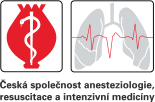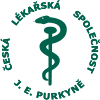Anest. intenziv. Med. 2015;26(6):319-327
Influence of prophylactic melatonin administration on the incidence of early postoperative delirium in cardiac surgery patientsAnaesthesiology - Original Paper
- 1 University of P. J. Safarik in Kosice, Medical Faculty, Dept. of Cardiovascular Surgery, Eastern Slovak Institute for Cardiovascular Diseases, Kosice, Slovakia
- 2 University of P. J. Safarik in Kosice, Medical Faculty, Dept. of Cardiac Anesthesia, Eastern Slovak Institute for Cardiovascular Diseases, Kosice, Slovakia
- 3 University of P. J. Safarik in Kosice, Medical Faculty, Dept. of Clinical Biochemistry, Slovakia
- 4 University of P. J. Safarik in Kosice, Medical Faculty, Dept. of Public Health, Slovakia
Objective:
Postoperative delirium in cardiac surgery is a severe complication. The circadian rhythm of melatonin secretion has shown to be altered postoperatively. It was hypothesized that by prophylactic supplementation of a substance that is capable of resynchronizing circadian rhythm such as melatonin may be possible to reduce the incidence of postoperative delirium.
Design:
It is prospective interventional clinical study.
Setting:
A specialized institute of tertiary level health care.
Material and methods:
Two consecutive groups (control and melatonin group) of 250 consecutive patients were enrolled. In the melatonin group the patients received orally 5 mg of prophylactic melatonin treatment the evening before surgery and then every evening until postoperative day 3.
Results:
The incidence of the delirium was 8.4% in melatonin group vs. 20.8% in control group (p = 0.001). Predictors of delirium in melatonin group were age (p = 0.001) and higher EuroSCORE II value (p = 0.001). In multivariate analysis of age and EuroSCORE II value (p = 0.014) were predictors of postoperative delirium. By comparing the group together main predictors of delirium were age (p = 0.001), EuroSCORE II value (p = 0.001), CPB time (p = 0.001), ACC time (p = 0.008), sufentanil dose (p = 0.001), mechanical ventilation (p = 0.033).
Conclusion:
The administration of melatonin appears to be associated with a significant decrease of postoperative delirium incidence after cardiac surgery and it should be considered in patients scheduled for cardiac surgery.
Keywords: delirium; prevention; melatonin; cardiac surgery
Received: July 1, 2015; Accepted: September 1, 2015; Published: December 1, 2015 Show citation
| ACS | AIP | APA | ASA | Harvard | Chicago | Chicago Notes | IEEE | ISO690 | MLA | NLM | Turabian | Vancouver |
References
- Norkiene, I., Ringaitiene, D., Misiuriene, I. et al. Incidence and precipitating factors of delirium after coronary artery bypass grafting. Scan Cardiovasc. J., 2007, 41, 3, p. 212-217.
 Go to original source...
Go to original source...  Go to PubMed...
Go to PubMed... - Afonso, A., Scurlock, C., Reich, D. et al. Predictive model for postoperative delirium in cardiac surgical patients. Semin. Cardiothorac. Vasc. Anesth., 2010, 14, 3, p. 212-217.
 Go to original source...
Go to original source...  Go to PubMed...
Go to PubMed... - Dispersyn, G., Pain, L., Challet, E., Touitou, Y. General anesthetics effects on circadian temporal structure: an update. Chronobiol. Int., 2008, 25, p. 835-850.
 Go to original source...
Go to original source...  Go to PubMed...
Go to PubMed... - Cronin, A. J., Keifer, J. C., Davies, M. F. et al. Melatonin secretion after surgery. Lancet, 2000, 356, p. 1244-1245.
 Go to original source...
Go to original source...  Go to PubMed...
Go to PubMed... - Bucerius, J., Gummert, J. F., Borger, M. A. et al. Predictors of delirium after cardiac surgery delirium: effect of beating heart (off-pump) surgery. J. Thorac. Cardiovasc. Surg., 2004, 27, p. 57-64.
 Go to original source...
Go to original source...  Go to PubMed...
Go to PubMed... - Caumo, W., Torres, F., Moreira, N. L. et al. The clinical impact of preoperative melatonin on postoperative outcomes in patients undergoing abdominal hysterectomy. Anesth. Analg., 2007, 105, p. 1263-1271.
 Go to original source...
Go to original source...  Go to PubMed...
Go to PubMed... - Ely, E. W., Margolin, R., Francis, J. et al. Evaluation of delirium in critically ill patients: validation of the confusion assessment method for the intensive care unit (CAM-ICU). Critical Care Medicine, 2001, 29, p. 1370-1379.
 Go to original source...
Go to original source...  Go to PubMed...
Go to PubMed... - Ely, E. W., Truman, B., Shintani, A. et al. Monitoring sedation status over time in ICU patients: reliability and validity of the Richmond Agitation Sedation Scale (RASS). JAMA, 2003, 289, p. 2983-2991.
 Go to original source...
Go to original source...  Go to PubMed...
Go to PubMed... - Sultan, S. S. Assessment of role of perioperative melatonin in prevention and treatment of postoperative delirium after hip arthroplasty under spinal anesthesia in the elderly. Saudi J. Anaesth., 2010, 4, 3, p. 169-173.
 Go to original source...
Go to original source...  Go to PubMed...
Go to PubMed... - Al-Alma, T., Brymer, C., Gutmanis, I. et al. Melatonin decreases delirium in elderly patients: A randomized, placebo-controlled trial. Int. J. Geriatr. Psychiatry, 2011, 26, p. 687-694.
 Go to original source...
Go to original source...  Go to PubMed...
Go to PubMed... - de Jonghe, A., van Munster, B. C., Gosling, J. C. et al. Effect of melatonin on incidence of delirium among patients with hip fracture: a multicentre, double-blind randomized controlled trial. CMAJ, 2014, 186, 14, p. E547-E556.
 Go to original source...
Go to original source...  Go to PubMed...
Go to PubMed... - Kazmiersky, J., Kowman, M., Banach, M. et al. Incidence and predictors of delirium after cardiac surgery. Results from the IPAC study. J. Psychom. Res., 2010, 69, 2, p. 179-185.
 Go to original source...
Go to original source...  Go to PubMed...
Go to PubMed... - Osse, R. J., Fekkes, D., Tulen, J. H. et al. High preoperative plasma neopterin predicts delirium after cardiac surgery in older patients. J. Am. Geriatr. Soc., 2012, 60, 4, p. 661-668.
 Go to original source...
Go to original source...  Go to PubMed...
Go to PubMed... - Robinson, T. N., Eiseman, B. Postoperative delirium in the elderly: diagnosis and management. Clin. Interv. Aging., 2008, 3, 2, p. 351-355.
 Go to original source...
Go to original source...  Go to PubMed...
Go to PubMed... - Andrejaitiene, J., Sirviskas, E. Early post-cardiac surgery delirium risk factors. Perfusion, 2011, 27, 2, p. 105-112.
 Go to original source...
Go to original source...  Go to PubMed...
Go to PubMed... - Guenther, U., Theuerkauf, N., Fromman, I. et al. Predisposing and precipitating factors of delirium after cardiac surgery. A prospective observational cohort study. Ann. Surg., 2013, 257, 6, p. 1160-1167.
 Go to original source...
Go to original source...  Go to PubMed...
Go to PubMed... - Rudolf, J. L., Jones, R. N., Levkoff, S. E. et al. Derivation and validation of a preoperative prediction rule for delirium after cardiac surgery. Circulation, 2009, 119, p. 229-236.
 Go to original source...
Go to original source...  Go to PubMed...
Go to PubMed... - Brown, W. N., Moody, D. M., Chalva, V. R. et al. Longer duration of cardiopulmonary bypass is associated with greater number of cerebral microemboli. Stroke, 2000, 31, p. 707-713.
 Go to original source...
Go to original source...  Go to PubMed...
Go to PubMed... - Lin, Y., Chen, J., Wang, Z. Meta-analysis of factors which influence delirium following cardiac surgery. J. Card. Surg., 2012, 27, 4, p. 481-492.
 Go to original source...
Go to original source...  Go to PubMed...
Go to PubMed... - Burkhart, C. S., Dell-Kuster, S., Gamberini, M. et al. Modifiable and non-modifiable risk factors for postoperative delirium after cardiac surgery with cardiopulmonary bypass. J. Cardiothorac. Vasc. Anesth., 2012, 4, p. 555-559.
 Go to original source...
Go to original source...  Go to PubMed...
Go to PubMed... - Gunaydin, B., Babacan, A. Cerebral hypoperfusion after cardiac surgery and anesthetic strategies: A comparative study with high dose fentanyl and barbiturate anesthesia. Ann. Thorac. Cardiovasc. Surg., 1998, 4, p. 12-17
- Pandharipande, P., Cotton, B. A., Shintani, S. et al. Prevalence and risk factors for development of delirium in a surgical and trauma intensive care unit patients. J. Trauma, 2008, 65, p. 34-41.
 Go to original source...
Go to original source...  Go to PubMed...
Go to PubMed... - McPherson, J. A., Wagner, C. E., Boehm, L. M. et al. Delirium in the cardiovascular ICU: exploring modifiable risk factors. Crit. Care Med., 2013, 41, 2, p. 405-413.
 Go to original source...
Go to original source...  Go to PubMed...
Go to PubMed... - Hudetz, J. A., Igbal, Z., Gandhi, S. D. et al. Postoperative delirium and short-term cognitive dysfunction occur more frequently in patients undergoing valve surgery with or without coronary artery bypass graft surgery compared with coronary artery bypass graft surgery alone: results of a pilot study. J. Cardiothorac. Vasc. Anesth., 2011, 25, 5, p. 811-816.
 Go to original source...
Go to original source...  Go to PubMed...
Go to PubMed...





